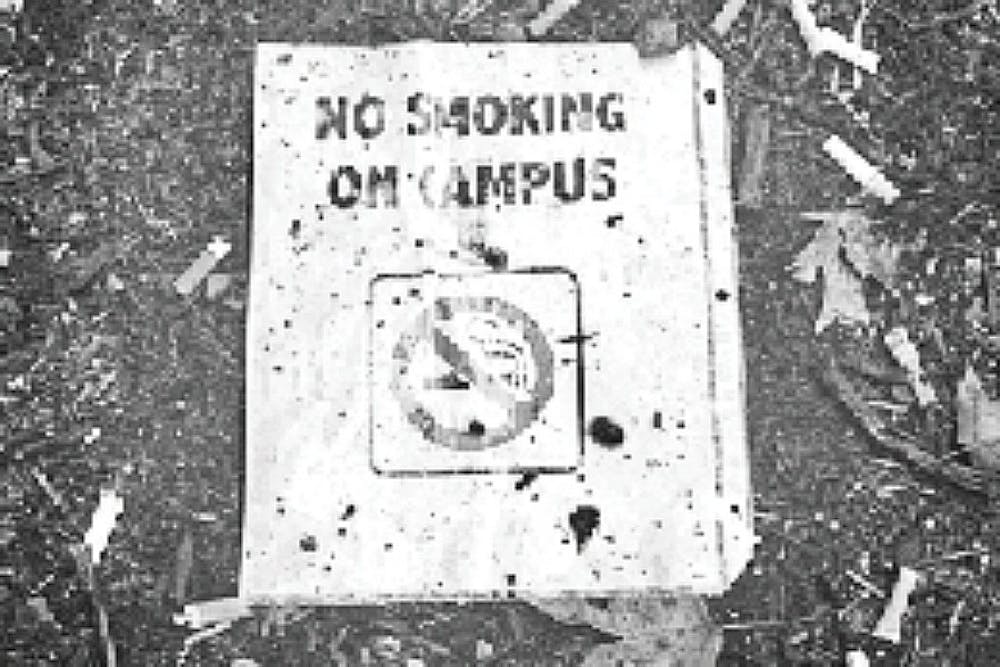By Elise Vasko, For The Miami Student
November became National Lung Cancer Awareness Month in 1995, around the time Miami University became a smoke-free campus.
According to Miami's archives, in January of 1993, Miami moved from a policy where smoking was permitted except in areas specifically identified as "no smoking" to a "no smoking" campus, with smoking being permitted only in very limited areas.
In 2002, Miami expanded its no-smoking policy to include all areas within 25 feet of residence halls. In 2008, under President David Hodge, it was revised again to prohibit smoking on all campus grounds. Additionally, as of 2014, the policy now includes the prohibition of e-cigarettes and tobacco.
"The historical trends across campuses are basically the same," said Western Program Archivist, Jacky Johnson. "As people become more educated about something, especially a health hazard, they don't want to be exposed to it, so I think that's why the policies have changed."
According to Miami's archives, smoking was not prohibited from all of Miami's classrooms and laboratories until 1976, and even then it was still allowed in residence halls, dining halls, and designated smoking areas in public buildings.
"You used to be able to smoke all around campus," said Johnson. "I mean, I still see people smoking on campus, but I don't see as many people smoking, and now you notice some of the buildings no longer provide ashtrays. I think that's a way of saying we're a smoke free campus."
Although Miami is a smoke-free campus, students do still choose to smoke on university property. The enforcement of Miami's no-smoking policy is primarily up to the university as well as the Miami University Police Department (MUPD).
MUPD Captain Ben Spilman said the intention of the policy is to be a community enforced standard, and everyone in the Miami community has an obligation to enforce the no-smoking policy.
"In terms of what our police officers do, we have some business cards with the university policies and also smoking cessation resources, which we distribute to people who we believe to be in violation," said Spilman. "Typically, when our officers encounter people who are smoking on campus and advise them of the policy, we don't have any kinds of compliance issues."
However, Spilman said, there are legal consequences of repeated violations.
"Ultimately, if someone refused to comply they can be charged with criminal trespassing, although we've never had that become an issue since the university has adopted the policy," said Spilman. "It would be enforceable, however we've never had to take that level of action."
Enjoy what you're reading?
Signup for our newsletter
Some students are in agreement with Miami's policy of a smoke-free environment.
"I feel like a smoke-free campus promotes higher health standards for the whole campus community," said first-year Morgan Beck.
Other students believe there is not much to prevent students from smoking as they please.
"I feel like if students actively smoke, then they're going to find other ways to do it, be it going off campus or just doing it on campus and risking getting in trouble," said first-year Abbey Fergus.
Fergus said she believes smoking should be permitted on Miami's campus.
"I think students should be allowed to smoke," said Fergus. "It's a personal choice that is supported by our government."




